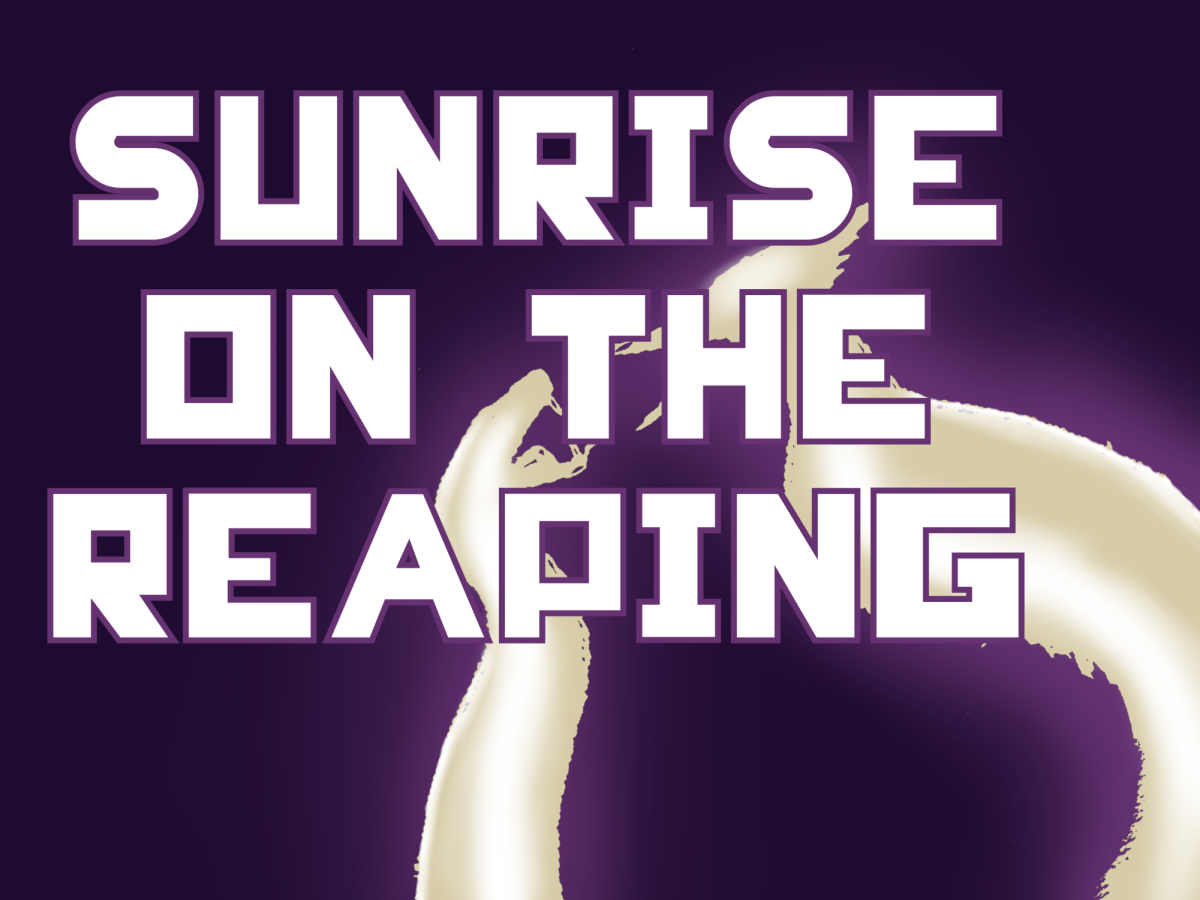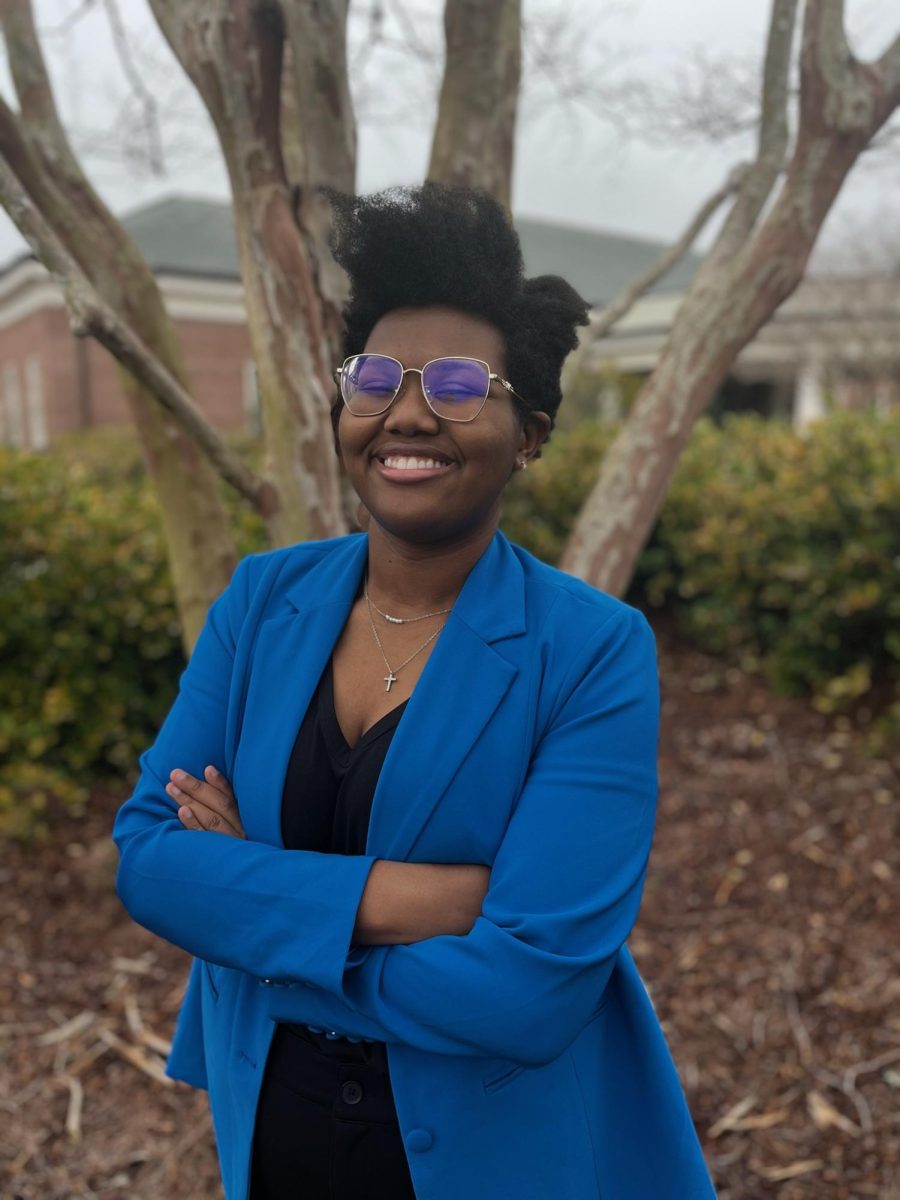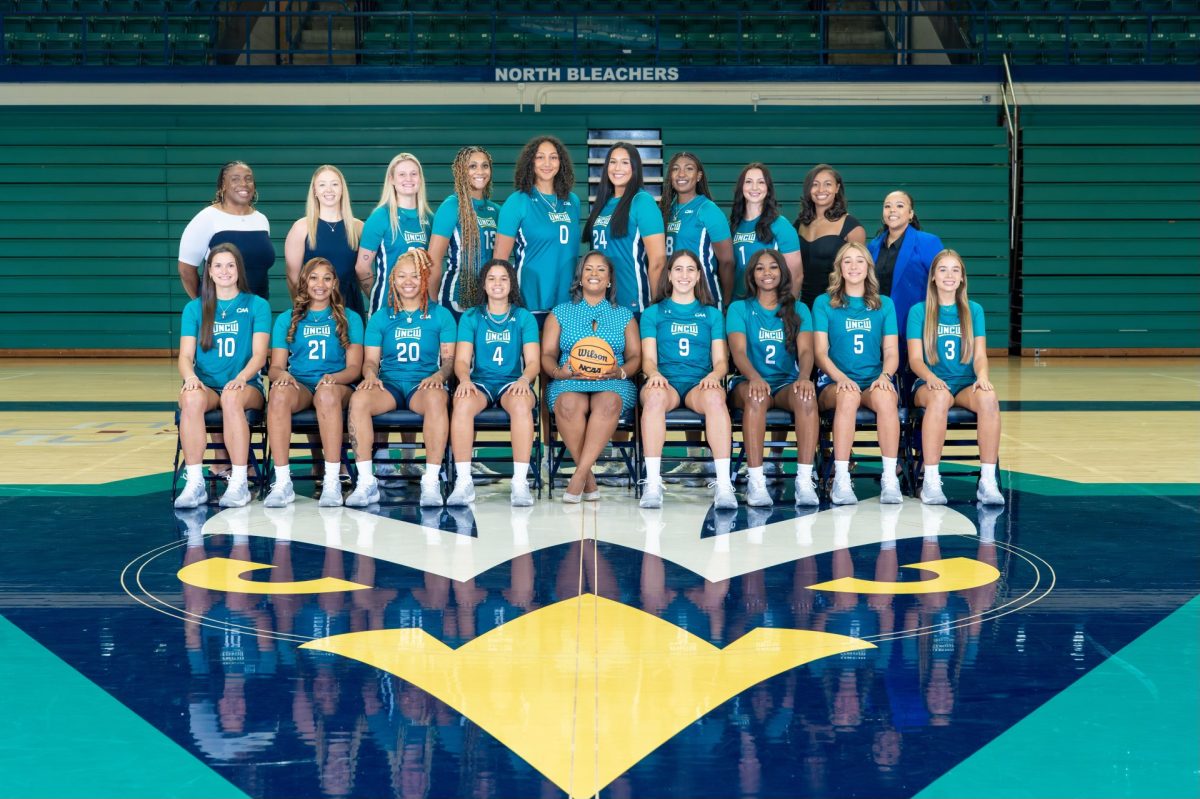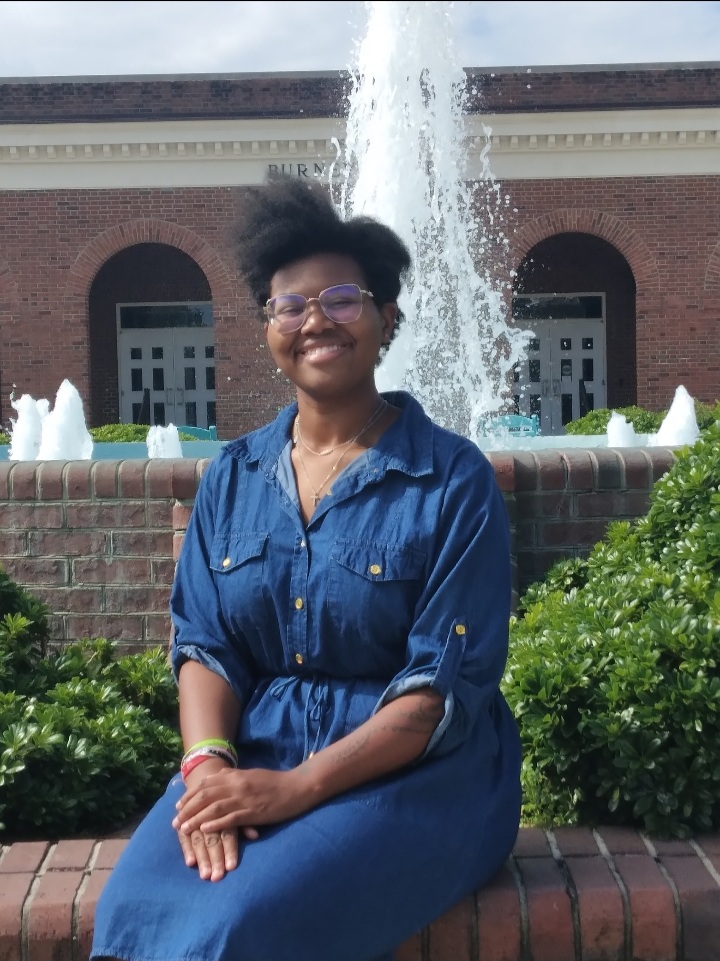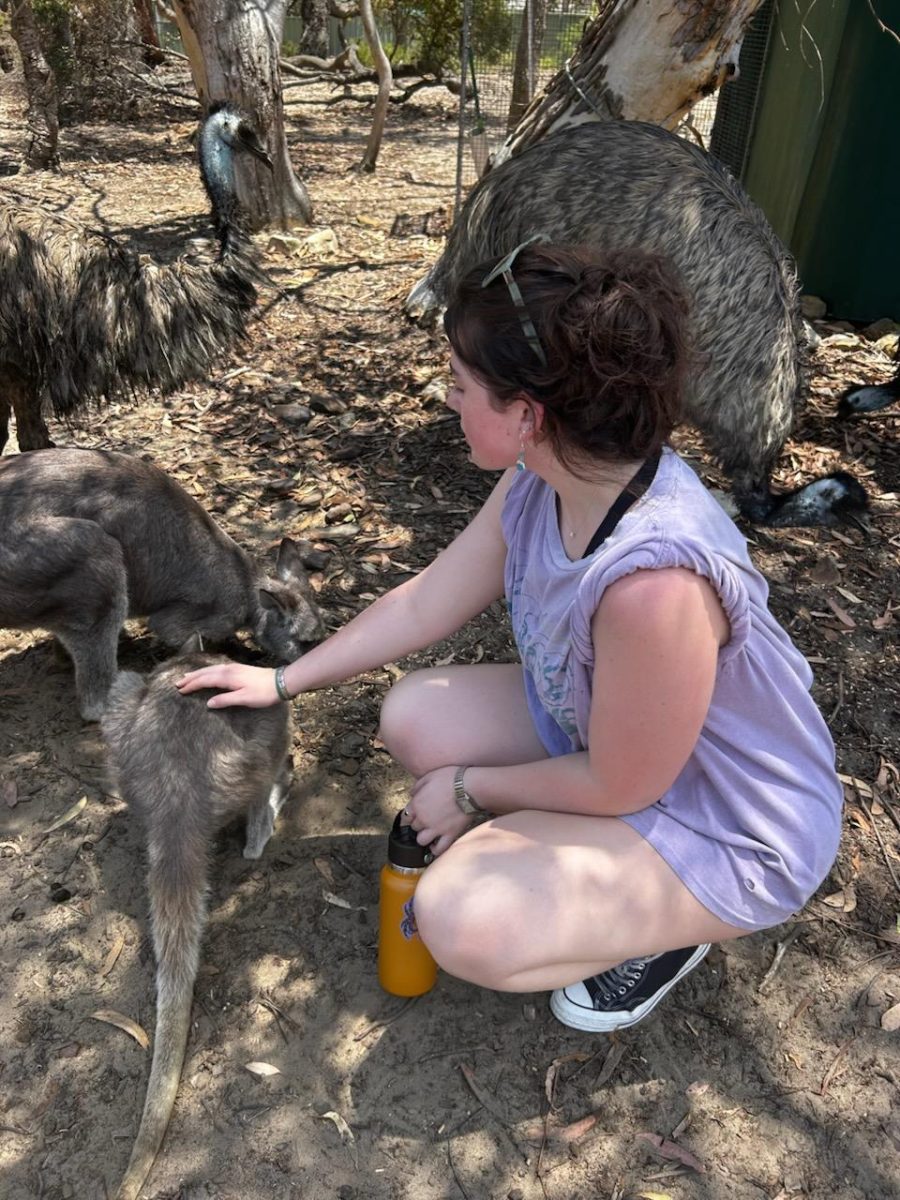
Editor’s Note:
I was heading to class in Morton Hall and on my usual walk to class, I see on the blackboard that stands in the hallway “a student at N.C. State committed suicide, and I am sad about it.” These words struck me deeply with their display of compassion, yet simultaneously left me disheartened that such a message ever needed to be written.
The mental health crisis we face has not subsided. Last year, N.C. State lost seven students to suicide. From 2016 to 2020, there were 878 deaths by suicide of people ages 15 to 24 in N.C. A national survey conducted by the American College Health Association found that 52 percent of undergraduate students regularly experienced moderate psychological distress. While this problem isn’t new, it feels more important than ever.
That’s why The Seahawk has partnered with eight other college newspapers to report on mental health challenges shared by those in each of their communities. This Mental Health Collaborative is the result of months of rigorous reporting, research, conversations, writing, editing and designing. This initiative began in 2023 when The Daily Tar Heel was awarded a grant from the Solutions Journalism Network as part of its Student Media Challenge initiative. That grant helped fund the collaborative work of this project. Many of the stories you will read in this collaborative do more than just present a problem — they also explore solutions to this crisis.
The Seahawk is honored to have had the privilege of working with The Daily Tarheel, The A&T Register, The Duke Chronicle, The East Carolinian, The Niner Times, The Old Gold & Black, The Pendulum and Technician on this project.
With more than 30 reported stories and seven opinion pieces, we touch on many issues related to mental health, from how Wake Forest University trains its faculty to be on the frontline of mental health care to how international students create community at East Carolina University.
While there’s still more that must be done, this is a step toward that future. As we navigate the complexities of mental health, we must not lose sight of the individual people behind the statistics — the students, faculty, families and communities affected. Their stories, their struggles and their resilience should serve as a guiding light. We hope that this mental health collaborative project serves as a call to action to create a future where no one suffers in silence.
For those who have endured the loss of a loved one to suicide, battled with their own mental health challenges, or supported someone else through their struggles, please know that you are not alone. We stand in solidarity with you.
UNCW is no stranger to conversations about the queer community. LGBTQ issues have largely moved to the forefront of political discussions and legal battles in both Wilmington and N.C. as a whole. In addition to the immediate legal and educational impact, recent book bans, “Don’t Say Gay” policies and other anti-trans laws across the country are also having mental health implications for members of the queer community.
A recent study conducted by The Trevor Project, an American organization dedicated to suicide prevention efforts for LGBTQ youth, found that 75% of LGBTQ youth nationwide often felt stress or anxiety due to threats of violence against queer spaces; as a result many experienced cyberbullying (45%), in-school bullying (24%) or physical assault (10%). Twenty-nine percent of queer youth also reported not visiting their doctor or hospital due to personal safety concerns.
At UNCW, a university with an overwhelmingly straight and cisgender population, The Seahawk spoke with a few students and recent graduates on their experiences as members of the queer community.
“Being here at UNCW has been good,” Hannah Lowman, a junior criminology student said. “Luckily there’s Mohin-Scholz, which has been a really big blessing to me because they’re very open, accepting and it’s helped me discover my true identity and learn a lot more about being queer than ever before.”
Lowman received an associate degree from Coastal Carolina Community College before transferring to UNCW. She came out as lesbian in March 2023, and described Mohin-Scholz, the LGBTQ+ resource center, as her “found family,” noting that her family at home was not so supportive.
“Even though there’s a lot of students who are cisgender, straight, it’s not forced. I do have to say that UNCW is very accepting to students who are queer,” Lowman said.
The Mohin-Scholz LGBTQIA Resource Center is located on the first floor of Fisher University Union and provides resources such as an LGBTQIA prom, trivia nights and SAFEZONE, which are four workshops geared toward faculty and staff that educate them on the queer community.
The director of Mohin-Scholz, Brooke Lambert, joined the center in 2016. She entered the position after a year of it being vacant and described the post-pandemic years as the most difficult in her time of working as director.
“The whole climate on campus felt a little different than we have experienced before,” Lambert said. “That’s not how I feel things are now, but last year things were not quite as supportive and welcoming as they have been previously.”
Discussion groups, called “Building Q*mmunity”, are another one of the resources provided by Mohin-Scholz. The program is not designed to be therapy, but rather to connect students with the UNCW Counseling Center. The collaboration brings an openly queer therapist to Mohin-Scholz’s space in Fisher every week.
“Knowing that queer youth experience more mental health issues, we want to make sure that that is an accessible resource; for everybody, but we certainly want to make sure that our queer students feel like that’s an accessible resource [for them],” Lambert said.
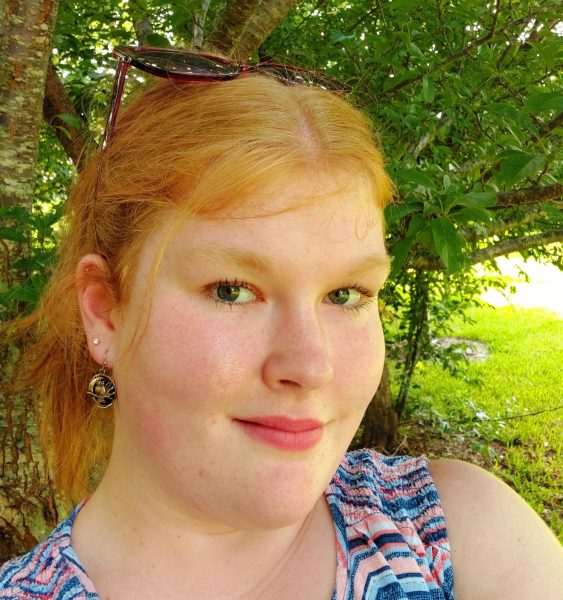
Nitya Budamagunta is a student in the creative writing department at UNCW. She moved to Wilmington from Cary, N.C., and described both cities as being fairly conservative but with “pockets” of queer people. The main difference, Budamagunta explained, was the diversity, or lack thereof, in the queer community in Wilmington as compared to Cary. Budamagunta spoke too on her experiences as a queer person of color and immigrant.
“With my experience as a queer person of color, the big thing for me is dealing with ‘how do I blend the culture that I come from with queerness, especially when a lot of the culture I come from is already affected by colonial ideals,” Budamagunta explained. “Maybe my culture was more accepting of queer people in the past, but colonialism happened and it isn’t anymore.”
Budamagunta has not met people at UNCW with the exact same background as her but finds acceptance and a support system through the LGBTQ community at the university. She described struggling for over a year to find people who understood her culture and traditions, as well as her experiences as a queer person.
“I was going to transfer my freshman year because I felt so isolated,” Budamagunta said. “It was not just the fact that I was dealing with the isolation of being in a place where nobody knew what Diwali was, but also on top of that I was dealing with being in a place that was pretty conservative and not very open to queer people. It was really isolating.”

Recent graduate Michael Friant struggled to find a community with shared experiences as well, noting that having more than one identity made it difficult for him to connect with others like him. He explained choosing Wilmington out of convenience reasons, and initially attended CFCC before transferring to UNCW.
“As a person with a disability, cerebral palsy, it would not be feasible to just start in another city/state,” Friant said. “I never really felt I belonged. I can count on my hand the number of times people have asked me about my sexuality and stuff.”
Friant also shared a fond memory from his time at UNCW, describing the visibility he felt during one moment with a friend.
“I was at a house party with some friends. I was hanging out on a hammock when one of my friends came over and said ‘All you need now is a cute boy by your side,’” Friant said. “In that moment, I felt seen and heard.”
When asked what advice he would give to queer people considering attending UNCW, Friant marked the importance of connecting with the local LGBTQ community. He also noted that LGBTQ students should expect to feel lonely and be strategic about those whom they disclose their identity to.
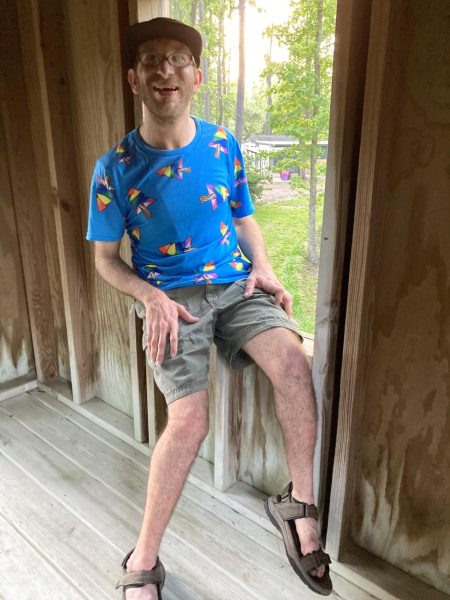
Jaden Hager is another recent graduate of UNCW who shared their experiences with The Seahawk. They moved to Wilmington from Mooresville, N.C., a town in the Charlotte metropolitan area. Mooresville has a small queer community, but hosts a pride parade every year.
After starting at UNCW, Hager was conflicted when deciding whether to come out to people or not, explaining that after living in Mooresville their entire life, many people already knew about their personal identity. Hager often felt uncomfortable and avoided having conversations about their pronouns.
“It would be made into something bigger, so I just kind of avoided it a lot,” Hager said. “I didn’t want to be known as ‘the non-binary person’ in class. Even though I would have my pronouns in my Canvas profile, I would be misgendered a lot. It just feels like it’s going to happen no matter what.”
Hager felt anxiety when making their identity visible to others. They explained the impact that being queer at UNCW had on their mental health.
“I was very anxious all the time, like, ‘Am I acting too queer? Can I make this joke? Am I hiding who I am if I don’t?’” Hager said. “I wouldn’t say it affected it a lot, but it was definitely something that was an added weight to my shoulders that I know I wouldn’t’ve had if I wasn’t queer.”
Hager and Budamagunta also expressed their reactions to the 2023 Razor Walker Awards, including discouragement, frustration and feeling unwelcome. The honors, sponsored by the Watson College of Education, were presented in April in a yearly ceremony to those who made a positive impact on education or public schools in N.C. UNCW’s administration canceled the 2024 event, for the first time in almost three decades, after facing widespread controversy for awarding Senator Michael Lee, the cosponsor of S.B. 49- the N.C. “Don’t Say Gay” bill.
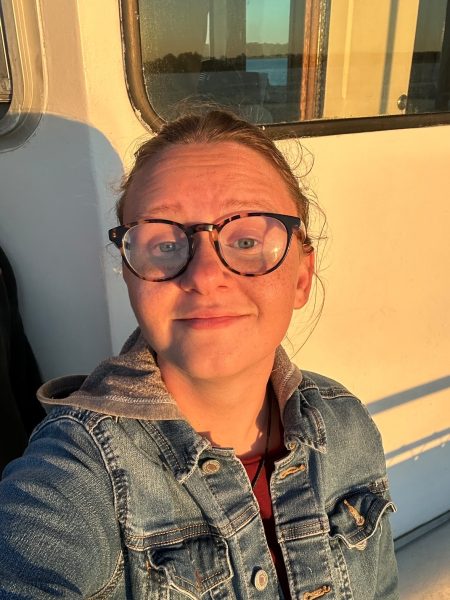
The Seahawk spoke with Dr. Julie Krueger, a professor at UNCW with expertise in sex work and masculinity, who teaches courses on gender and sexuality. Queer students are well represented in these classes. Krueger’s supervisor is the first out transgender faculty member, and she explained that she navigates an environment that does not represent UNCW as a whole.
Krueger’s expertise is not in mental health or psychology. However, her studies and work at the university have transformed the way she views the world. She had this to say about queer youth in the aftermath of the Razor Walkers and S.B. 49.
“Living in that political climate profoundly affects students’ mental health,” Krueger said. “Being in an environment where you feel you are targeted; where you feel that people are attacking you for who you are and denying you resources; denying you opportunities and denying the legitimacy and validity of your identity; denying your very right to exist—that’s incredibly damaging.”
Krueger referred to several studies, including the above by The Trevor Project, that have researched the impacts of homophobic legislation. Anti-LGBTQ bills were consistently found to increase stress, anxiety and depression in queer juveniles and young adults—a population that is already at a high risk for mental health issues, including suicidal ideation.
S.B. 49 was signed into law in August 2023 after the N.C. Senate and House of Representatives both voted to override Governor Roy Cooper’s veto. Its specific, long term mental health effects are yet to be determined.
The LGBTQ community is not a monolith, a fact found to be true even in universities such as UNCW with only a small population of queer people. Community, however, was found as a blessing, resource or desire in every conversation The Seahawk had.
“Don’t be afraid to reach out, especially to resources like the counseling center, the Student Health Center, Mohin-Scholz, especially,” Lowman said. “Those are some of the greatest resources that you could ever have. Especially if you have family members who judge you or don’t know that you’re gay or disowned you; they’re not gonna do that. They’re gonna love you and welcome you with open arms.”
The following are additional schools in N.C. that took part in this mental health initiative:
UNC Charlotte
Wake Forest University
IfYoureReadingThis: Student-led mental health resource offers fresh perspectives
The UCC’s journey from pandemic pitfalls and back
How Wake Forest trains its faculty to be on the front line of mental health care
N.C. State University
OPINION: How we talk about suicide online matters
Campus community uses AI to address mental health
East Carolina University
The community building within ECU
Morgan’s Message spreads mental health awareness in student-athletes
North Carolina Agricultural and Technical State University
The state of mental health at N.C. A&T
HBCUs grapple with tuition increases and student mental health
Elon University
Phoenix Free: Sobriety on campus
Elon professor sheds light on college students with eating disorders
HealthEU moves toward new wellness center
UNC-Chapel Hill
Students and faculty reflect on university well-being days across North Carolina
How two flagship North Carolina universities responded after several student deaths
‘Therapy should be affordable to everyone’: CAPS addresses financial burdens of therapy
Study examines mental health impact of campus gun-related incidents
UNC students of color find mental health support through community
‘It’s OK to ask for assistance’: How UNC’s elite athletes use mental health as an edge
Club and intramural sports foster community, outlet for UNC students
Culture-responsive care addresses mental health disparities in tribal communities
LGBTQ+ support groups provide community care for substance abuse
Health humanities laboratory looks to bridge medical, social sciences
The Farm at Penny Lane grows hope through therapy programs
‘It’s about the process’: Art therapy provides creative outlet as mental health care
Criminal justice diversion programs redirect, guide individuals
‘Could have been doing this all along’: State budget invests in mental health resources
NCDHHS launches child behavioral dashboard, reflects mental health data in children
Mental health providers, patients face inconsistencies in insurance coverage
Community members find mental health relief in spirituality
Editorial: Elected officials must do more for mental health
Column: Mental health is generational in minority communities. Acknowledge it
Op-ed: Make space to help those struggling with their mental health
Op-ed: It’s time to replace the word ‘stigma’ with ‘sanism’
Op-ed: UNC’s win-at-all-cost attitude jeopardizes the safety of athletes
Column: Remission from major depressive disorder is possible
Duke University
Exploring how we think, feel and socialize: A look into mental health research at Duke







